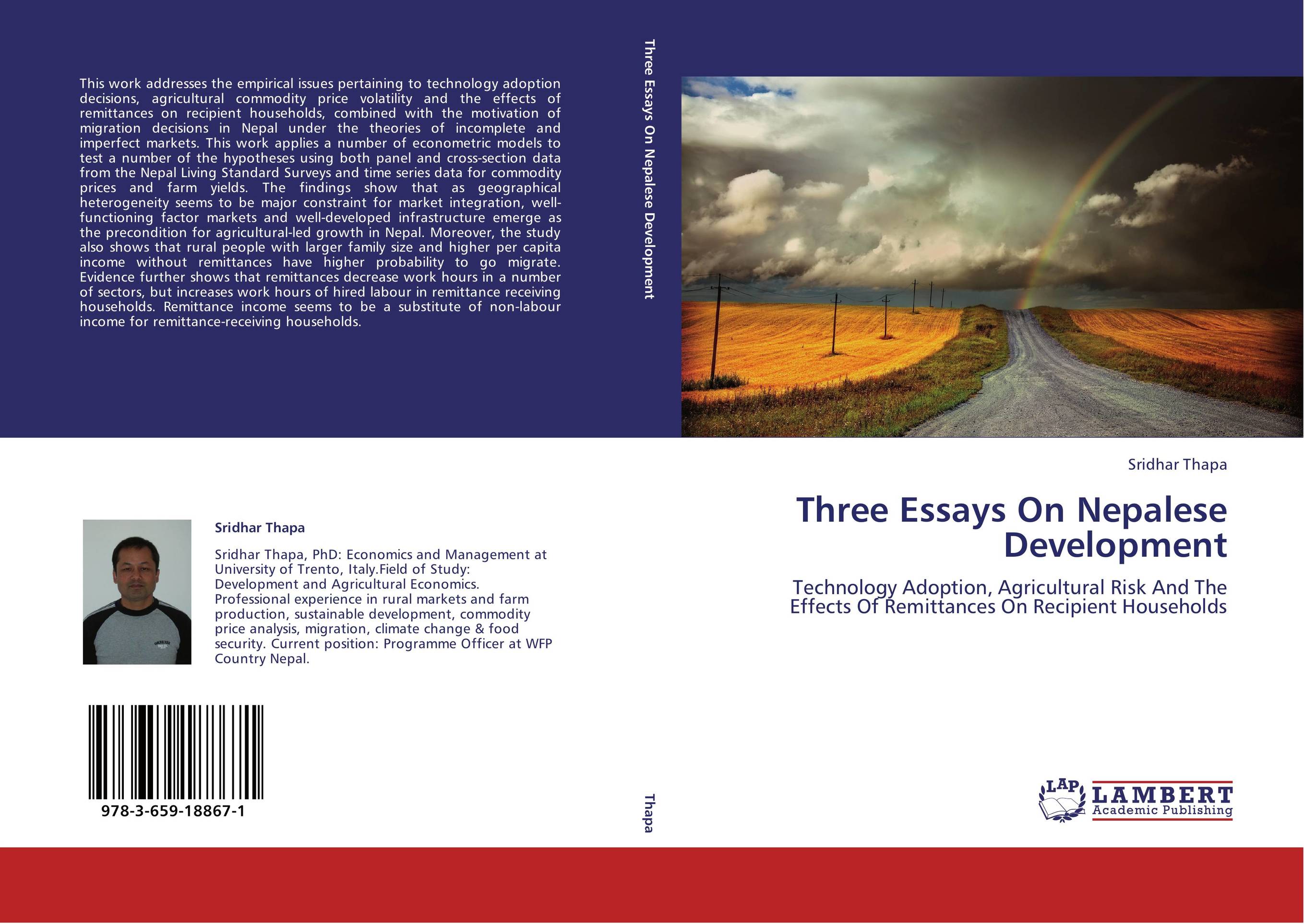| Поиск по каталогу |
|
(строгое соответствие)
|
- Профессиональная
- Научно-популярная
- Художественная
- Публицистика
- Детская
- Искусство
- Хобби, семья, дом
- Спорт
- Путеводители
- Блокноты, тетради, открытки
Three Essays On Nepalese Development. Technology Adoption, Agricultural Risk And The Effects Of Remittances On Recipient Households

В наличии
| Местонахождение: Алматы | Состояние экземпляра: новый |

Бумажная
версия
версия
Автор: Sridhar Thapa
ISBN: 9783659188671
Год издания: 2012
Формат книги: 60×90/16 (145×215 мм)
Количество страниц: 244
Издательство: LAP LAMBERT Academic Publishing
Цена: 52179 тг
Положить в корзину
| Способы доставки в город Алматы * комплектация (срок до отгрузки) не более 2 рабочих дней |
| Самовывоз из города Алматы (пункты самовывоза партнёра CDEK) |
| Курьерская доставка CDEK из города Москва |
| Доставка Почтой России из города Москва |
Аннотация: This work addresses the empirical issues pertaining to technology adoption decisions, agricultural commodity price volatility and the effects of remittances on recipient households, combined with the motivation of migration decisions in Nepal under the theories of incomplete and imperfect markets. This work applies a number of econometric models to test a number of the hypotheses using both panel and cross-section data from the Nepal Living Standard Surveys and time series data for commodity prices and farm yields. The findings show that as geographical heterogeneity seems to be major constraint for market integration, well-functioning factor markets and well-developed infrastructure emerge as the precondition for agricultural-led growth in Nepal. Moreover, the study also shows that rural people with larger family size and higher per capita income without remittances have higher probability to go migrate. Evidence further shows that remittances decrease work hours in a number of sectors, but increases work hours of hired labour in remittance receiving households. Remittance income seems to be a substitute of non-labour income for remittance-receiving households.
Ключевые слова: Nepal, remittances, labour supply, farm households, Farm Technology, commodity price fluctuations



